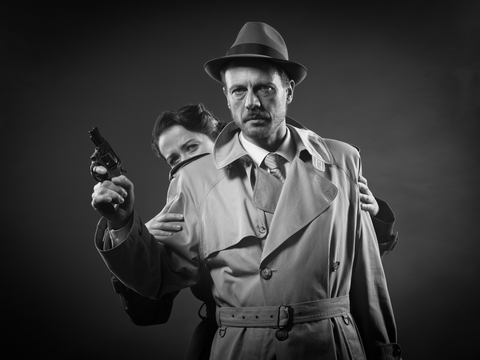What’s in a name? Plenty, if we’re talking about the label assigned to a novel. It governs where the work is shelved in a bookstore or library or what algorithm an e-tailer uses to recommend it. It determines whether the novel’s readership is largely men or almost entirely women, or children or young adults or women of a certain age. It controls what awards the novel might be eligible for, what Best Of lists it might make, what kind of cover the art department designs for it, and which reviewers and book bloggers it’s sent to in galley.
Genre labels are well-known, e.g., mystery, romance, sci-fi, fantasy. The term literary novel first evolved as a means of labeling fiction that didn’t fit into any known genre. But the usage mutated over the years, and today most people understand the term to mean a novel that’s more serious, more elevated in style and substance than genre fiction. These labels– literary versus genre –– can mark the difference between a novel discussed at cocktail parties and one hidden behind a newspaper on the train. In short, the difference between high art and low entertainment.
Consider the dichotomy between the literary novel and the thriller, one of the more popular forms of genre fiction. A literary novel, we are told, is focused on character and seeks to make sense of the world by exploring the human condition. It may be experimental in form and employ stylistic elements to convey a deeper meaning. Endings are seldom neat resolutions. Conflict is internal, introspection takes precedence over plot, and action is non-existent. Literary novelists, it’s been said, often strain even to lift a character out of his chair and move him across the room.
Thrillers, on the other hand, are said to be entirely plot-driven, usually formulaic, with stereotyped characters and prose that is serviceable at best.
Hey, I don’t make the rules; I just google and synopsize them.
What then to make of this term literary thriller? If it’s a thriller, it must be plot-driven, right? But if it’s all about plot, then it can’t possibly be literary.
So is the term literary thriller an oxymoron? Some newfangled hybrid? Or does it merely describe a thriller that’s better written than the norm? By an author with an MFA?
My hot take: today’s literary thriller is the best and highest form of the novel. It includes all the well-crafted prose and elegant style of the typical literary novel, and it likewise reveals character and explores the human condition, but — it accomplishes all this not through introspection or deep dives into memory, but rather through a story arc that engages the readers with a propulsive force that carries them from stasis through climax to resolution. All that, and it also has to make sense in the real world.
Whew! That’s a lot to ask of a novel. But here are three literary thrillers that more than deliver:
Long Bright River, by Liz Moore, is an elegiac portrait of a Philadelphia neighborhood that was once solidly working-class and is now ravaged by drugs. Mickey is a uniformed police officer; her sister Kacey is an addict who supports her habit through prostitution. When Kacey goes missing amid a murder spree of other prostitutes, Mickey launches a desperate search for both the serial killer and her sister, through drug dens and back alleys that are fraught with peril and heartache. Undeniably a crime novel, Long Bright River includes the usual misdirection of a classic mystery, most of the familiar tropes of a police procedural, and all the frantic pacing of a thriller. But it also has elegant prose, searing character portraits, and grim social commentary, i.e., the touchstones of a literary novel.
Moore, who teaches creative writing and, yes, has an MFA, was asked at a recent event about the literary/genre divide. She replied that she eschews such labels but considers her writing to be “realistic fiction,” by which she means plausible characters acting in plausible ways, and with an attention to language. If there’s anything thriller-like about her work, she allowed, it would be the pacing. These attributes—realism, style, pacing–are, I posit, the very hallmarks of the literary thriller.
Descent, by Tim Johnston, provides a stunning example. A teenage girl is abducted during a family vacation—the launchpad of many a genre thriller. It’s what happens next that lifts this novel into the literary realm. There is the usual frantic search for the missing girl, but it doesn’t lead to the usual swift resolution. Instead, months go by, then years. The parents’ marriage falls apart. The mother returns home, but the father stays on, searching, drinking, obsessing. The daughter suffers in captivity, horribly, until she is ultimately freed through the actions of an unlikely hero and her own astonishing grit. It’s a brilliant, can’t-pull-your-eyes-away thriller, peopled with fully-realized characters who defy stereotypes, and all of it expressed in fine-crafted prose.
Like Liz Moore, Tim Johnston has gone to some pains to avoid the thriller label. I write character first, plot second, he’s said. But his characters would lie flat on the page if all they did was go to work or school and come home and have dinner and go to bed. It’s the plot—the crime, the consequences, the suspense, i.e, the thriller aspects—that reveals who these people are.
The same is true of Razorblade Tears, by S.A. Cosby, another literary thriller that deserves all of its many accolades. It’s a revenge tale—two fathers whose sons are murdered seek to find the killer and make him pay. Again, a standard trope. But Cosby completely subverts the genre: the fathers are an alcoholic redneck and an entrepreneurial Black man whose sons were a married couple. Ravaged by grief and haunted by guilt for their refusal to accept their sons for who they were, the two fathers put aside their prejudices to team up and exact justice. What follows are scenes of Peckinpah-level violence interwoven with moments of deep tenderness as an unlikely bond grows between two men. Understanding grows, too, and acceptance. Cosby’s thriller plot not only serves to reveal character, it develops it. Over the course of the novel, these men change in fundamental ways.
These three works––at first blush, a police procedural, a missing girl drama, and a revenge tale––far exceed the expectations of the genre. But they also deliver more than the standard literary novel. The literary thriller brings the best of both worlds: it tells a heart-pounding story in exquisite prose with fully-realized characters whose journey informs the reader about something deeper and larger than themselves. It’s a novel that you can’t put down but that you wouldn’t hesitate to discuss at that erudite cocktail party.
Bonnie Kistler is the author of House on Fire (2019) and The Cage, on sale February 15, 2022.
About the Author

A former Philadelphia trial lawyer, Bonnie Kistler attended Bryn Mawr College, where she graduated magna cum laude with Honors in English literature, and she received her law degree from the University of the Pennsylvania Law School where she was a moot court champion and legal writing instructor. She is the author of THE CAGE (Harper, 2/15/2022) and House of Fire. She and her husband divide their time between Sarasota Florida and the mountains of western North Carolina. https://bonniekistler.com/

